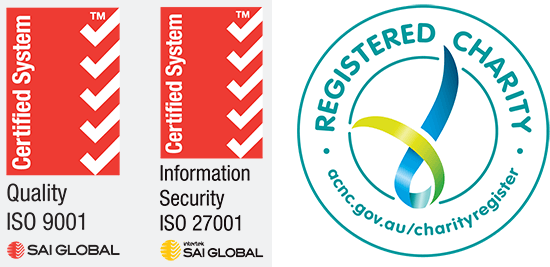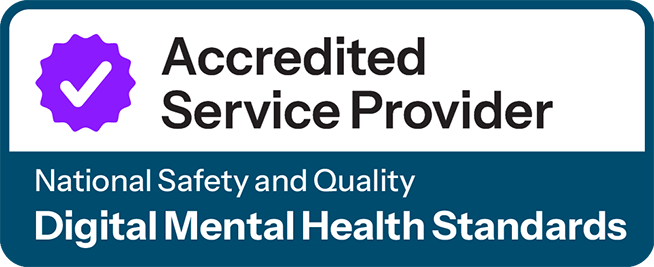General practice accreditation
General practice accreditation is a voluntary process where practices can be assessed against the Royal Australian College of General Practitioners’ Standards for General Practice, fifth edition.
The purpose of accreditation is to enhance patient care by ensuring consistent and high-quality service delivery, fostering continuous improvement, and providing patients with confidence in the quality of their health care. It also supports practices in identifying areas for growth and aligns them with contemporary medical practices and safety standards.
The National General Practice Accreditation Scheme is overseen by the Australian Commission on Safety and Quality in Health Care (ACSQHC).
NWMPHN support with accreditation
NWMPHN’s Primary Care Team is here to support your practice across the accreditation cycle. Good places to start are these two webinar videos:
Your NWMPHN primary care facilitator can answer questions, help you navigate available resources and to support you with QI activities. We also offer educational events and activities on accreditation and related topics.
Email primarycare@nwmphn.org.au to contact your primary care facilitator at any time.
-
Accreditation 101
The benefits of becoming accredited include:
- conveying your practice’s commitment to providing a high-quality service to your patients
- the ability to participate in training programs, allowing registrars to work in your practice
- access to incentive programs and additional funding linked with MyMedicare.
Becoming accredited
Once you decide to have your practice accredited, the first step is selecting the agency you wish to conduct the process. Visit the ACSQHC website for a list of approved accreditation agencies.
When your practice has registered for accreditation, it is eligible for several incentive programs. See Services Australia for the list of these.
The accreditation process takes approximately 12 months. For detailed information see the National General Practice Accreditation Scheme website.
-
The standards and companion documents
The Royal Australian College of General Practitioners (RACGP) develops standards to improve the quality and safety of health services, and to prevent patient harm. A number of companion documents are available to assist practices to meet them.
- RACGP Standards for General Practice, fifth edition
- RACGP Infection Prevention and control guidelines
- RACGP Standards – Resource guide
- RACGP Patient Feedback Requirements
- RACGP Policy & procedure templates
- RACGP General Practice Business Toolkit
The RACGP has several other resources on running the practice that will also be helpful.
-
Infection prevention and control
Under the protocols contained in the Standards for General Practice, fifth edition, the practice must have a dedicated clinical team member with primary responsibility for infection prevention and control.
It also needs a clinical team member responsible for educating the practice team about these matters. This can be the same clinician or a different one.
Criterion GP4.1 details the responsibilities of these roles.
Resources
Policy and procedure templates, and supporting resources, are available through your accreditation agency via your online accreditation portal. To gain access, contact your agency or the team member leading the accreditation process.
- RACGP infection prevention and control guidelines
- Infection prevention and control e-learning for non-clinical staff – Victorian Department of Health and VICNISS
- National hand hygiene initiative learning management system – ACSQHC
- Infection prevention and control: key points for accreditation – NWMPHN webinar
-
Cold chain and vaccine management
Under the protocols contained in the Standards for General Practice, fifth edition, the practice must have a dedicated team member with primary responsibility for cold chain management.
Criterion GP6.1 details the responsibilities of this role.
Cold chain management in general practice must be compliant with the current edition of the Department of Health, Disability and Ageing’s National Vaccine Storage Guidelines: Strive for 5.
Since August 2023, the Victorian Department of Health has required each practice to nominate a vaccine coordinator and back-up person to access government-funded vaccinations. These team members must complete the Department’s clinical staff/vaccine coordinator cold chain management e-learning package on its hub and upload their certificate of completion to the Department of Health via the online portal.
Resources
- National vaccine storage guidelines: Strive for 5 – Department of Health, Disability and Ageing. (Additional resources from this source include posters and stickers.)
- Vaccine fridge temperature chart – Department of Health, Disability and Ageing
- Vaccine storage self-audit – Department of Health, Disability and Ageing
- Victorian Department of Health immunisation e-learning hub
- Victorian Department of Health cold chain breach reporting
-
Quality improvement
Quality improvement (QI) is a core tenet of general practice accreditation. Regular reviews of your practice structures, systems and outcomes contribute to patient safety and care.
Under the protocols contained in the Standards for General Practice, fifth edition, the practice must have a dedicated team member with primary responsibility for leading QI systems and processes.
However, QI is a whole-team activity: everyone should have the opportunity to participate. Any QI activity should be based on the practice’s own information, data and identified need.
North Western Melbourne Primary Health Network (NWMPHN) is here to support you in this endeavour, including through data collection. More information can be found through your NWMPHN primary care facilitator or on our QI page.
-
Risk management and emergency planning
Risk management, both clinical and non-clinical, is vital for ensuring the safety of your patients and staff. As part of your overall business continuity plan, it also plays a part in ensuring the viability of your practice.
The Standards for General Practice, fifth edition, set out the requirements for clinical risk management in Criterion QI3.1 and non-clinical risk management in Criterion C3.2.
Resources
- Emergency preparedness in general practice – NWMPHN
- General Practice Clinical Risk Management System – Rural Health West
- Risk register and treatment plan template – Business Victoria
- Risk assessment and planning – RACGP
- Emergency response planning tool – RACGP
More information
For further information about accreditation or quality improvement, please email primarycare@nwmphn.org.au or call (03) 9347 1188.





